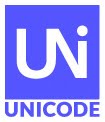![[Mayan Image]](https://cdn.statically.io/img/lh3.googleusercontent.com/blogger_img_proxy/AEn0k_vSdx4CYs5uRbCKkmxq826_5J_1cMblR19S1U1a2-Lvw9Onwdono8ja_Tq9oCrY50LVMECupLmW-Q5cW08MNC3WiBILCqf1slsox-eXjLnk6d2AyIg_fQ=s0-d) The National Endowment for the Humanities (NEH) recently announced their grants for 2020 to support 188 humanities projects across the United States. The Unicode Consortium's project to make Maya texts accessible to both expert and non-expert user communities through creating an annotated digital archive is one of the funded projects. This project will be led by principal investigator, Gabrielle Vail.
The National Endowment for the Humanities (NEH) recently announced their grants for 2020 to support 188 humanities projects across the United States. The Unicode Consortium's project to make Maya texts accessible to both expert and non-expert user communities through creating an annotated digital archive is one of the funded projects. This project will be led by principal investigator, Gabrielle Vail.The NEH announcement included mention of the grant to the Unicode Consortium: "Another grant will augment the international Unicode computer text encoding standards to digitally render additional historical and modern scripts, including Mayan ... hieroglyphs."
Thousands of texts written in a hieroglyphic script by prehispanic Maya cultures have been preserved throughout the Maya lowlands, in museums, and in private collections. Various media were used, including painting, carving, and incising. Texts can be found on large-scale stone monuments, the walls of buildings, painted polychrome vessels, codices made from fig-bark paper, and small objects made from stone, bone, and wood. The project will focus on building a digital archive to include texts from Classic period monumental sites. These Classic period texts are most often of a dynastic or political nature.
The Unicode Maya project will advance research on Classic period sites circa 250-900 CE (Common Era) to determine the sign repertoire or character list, a list of quadrats (specific configurations that can be arranged and combined to form a glyphic cartouche or block), a glossary of attested terms from the Classic period, a lexicon mapping of Classic period terms to the Colonial period and modern Mayan dictionaries, and finally, the creation of OpenType fonts.
About the Unicode Consortium
The Unicode Consortium is a non-profit organization founded to develop, extend and promote use of the Unicode Standard and related globalization standards.The membership of the consortium represents a broad spectrum of corporations and organizations, many in the computer and information processing industry. Members include: Adobe, Apple, Emojipedia, Facebook, Google, Government of Bangladesh, Government of Tamil Nadu, Huawei, IBM, Microsoft, Monotype Imaging, Netflix, Sultanate of Oman MARA, Oracle, SAP, Tamil Virtual University, The University of California (Berkeley), plus well over a hundred Associate, Liaison, and Individual members. For a complete member list go to https://home.unicode.org/membership/members/.
Over 130,000 characters are available for adoption, to
help the Unicode Consortium’s work on digitally disadvantaged languages.
![[badge]](https://cdn.statically.io/img/lh3.googleusercontent.com/blogger_img_proxy/AEn0k_uZx3lzKEuxfNuOg3UNzdHZWI1x_9sduMtIVHBf85ayRPWRg_RrPib_shQpuXw0-blUQ3Hxd9hRQ_PTU-L4snS6V-Rf6mJ3Rum2dULhqIb92Mc-LYL9-o_s=s0-d)
![[badge]](https://cdn.statically.io/img/lh3.googleusercontent.com/blogger_img_proxy/AEn0k_uZx3lzKEuxfNuOg3UNzdHZWI1x_9sduMtIVHBf85ayRPWRg_RrPib_shQpuXw0-blUQ3Hxd9hRQ_PTU-L4snS6V-Rf6mJ3Rum2dULhqIb92Mc-LYL9-o_s=s0-d)

 The
The 


